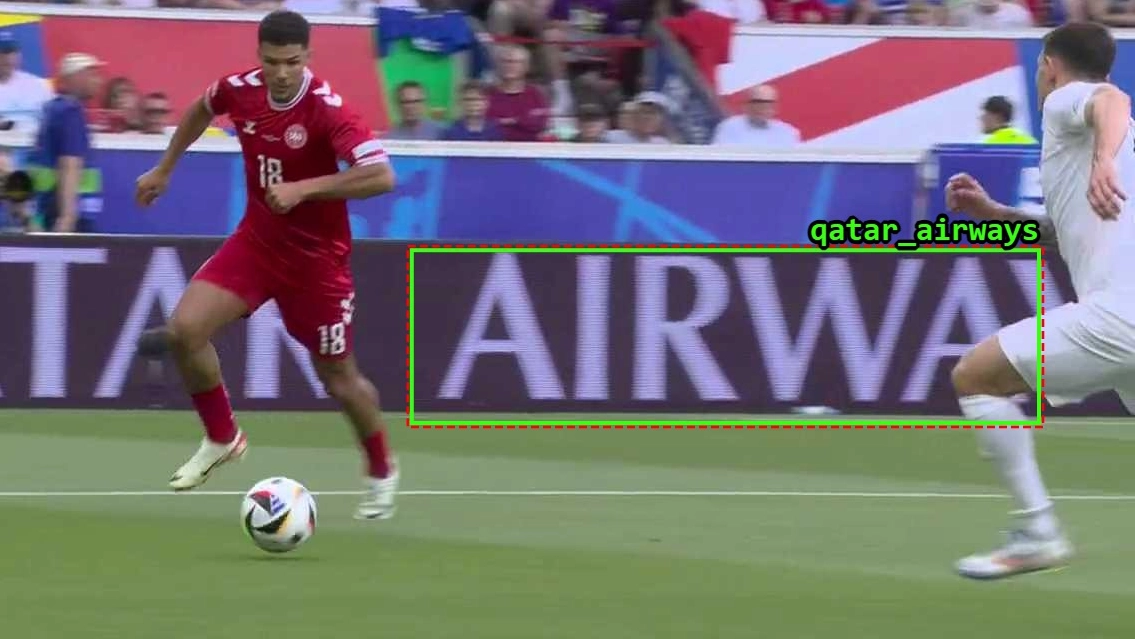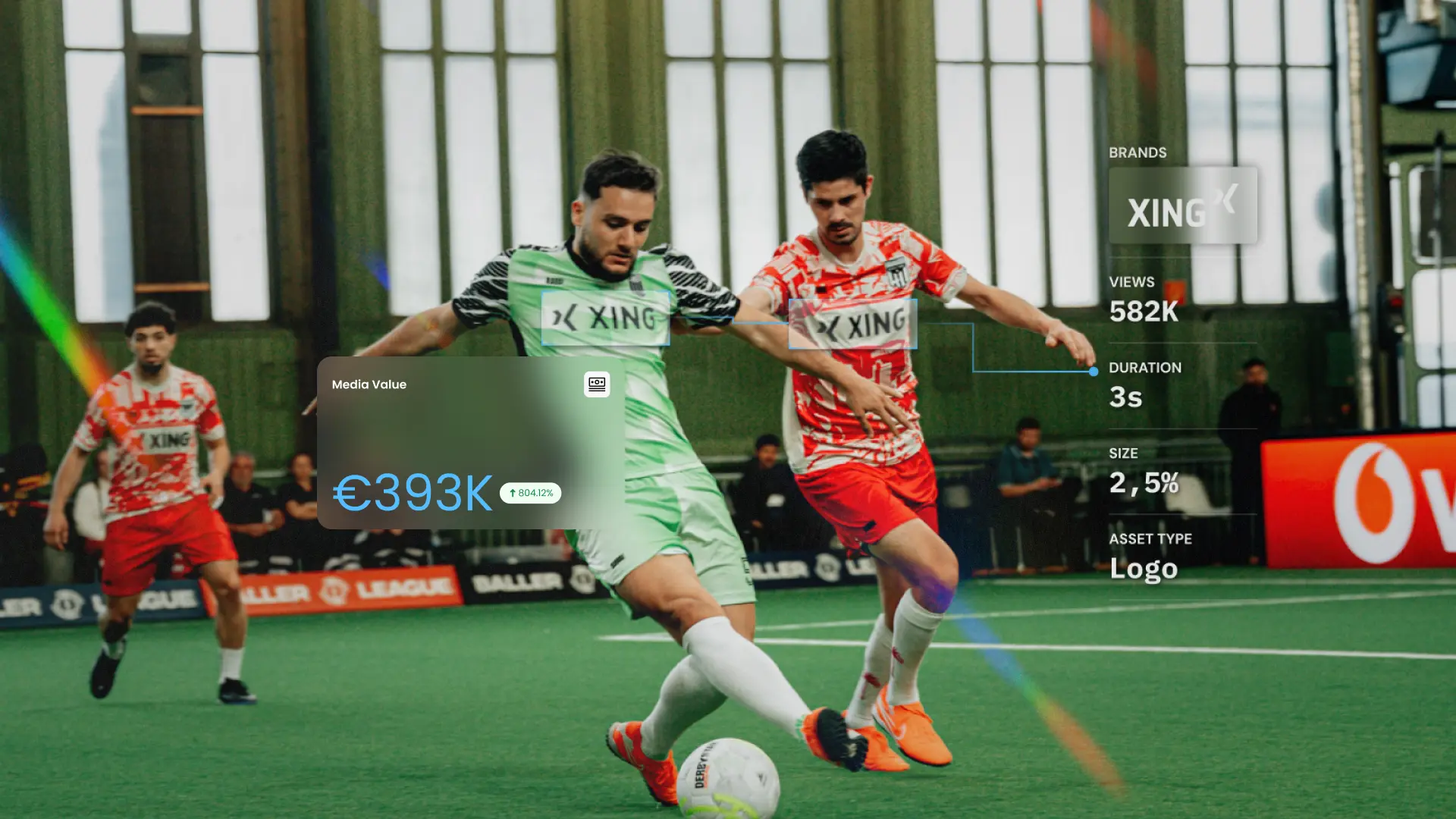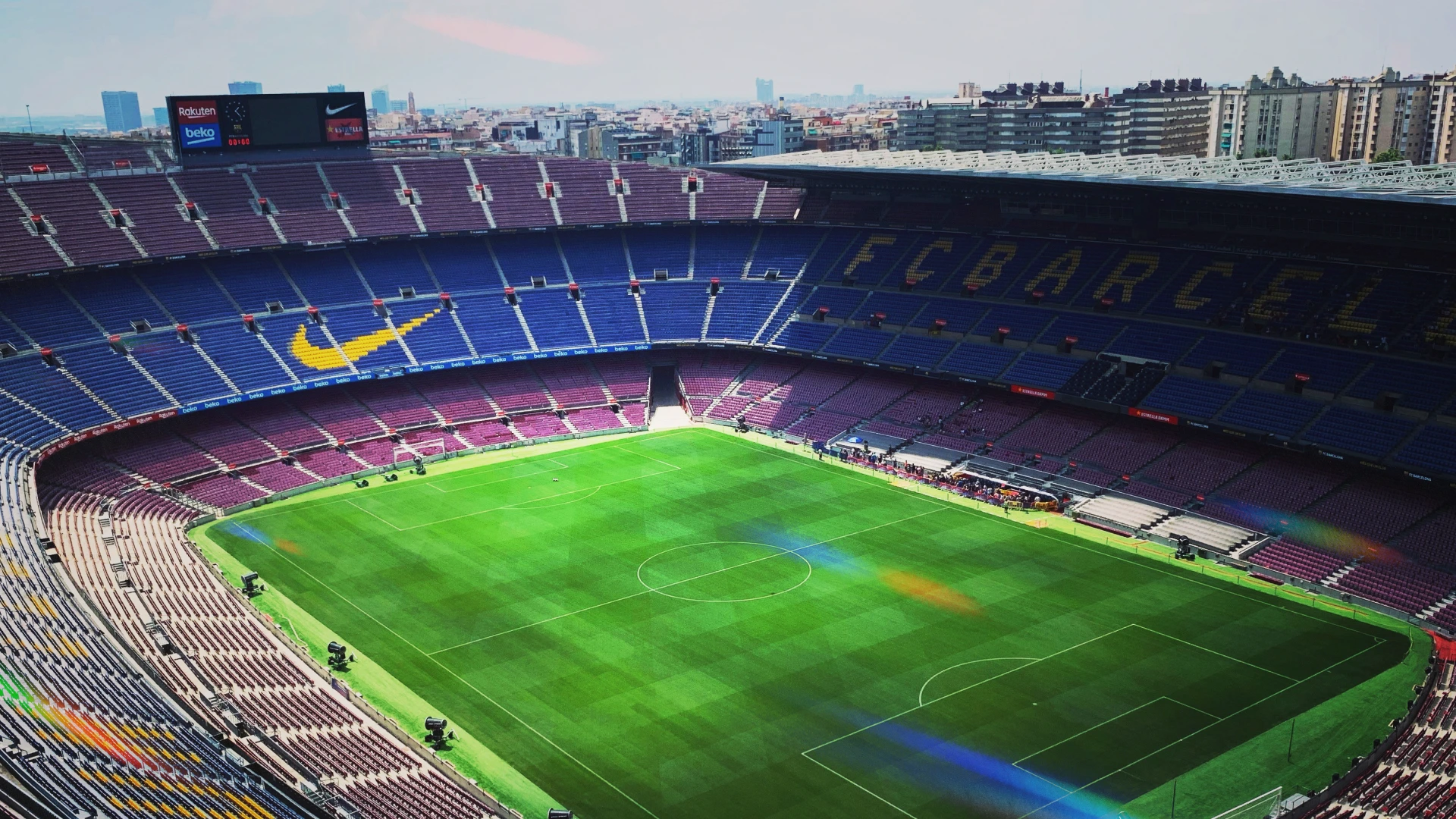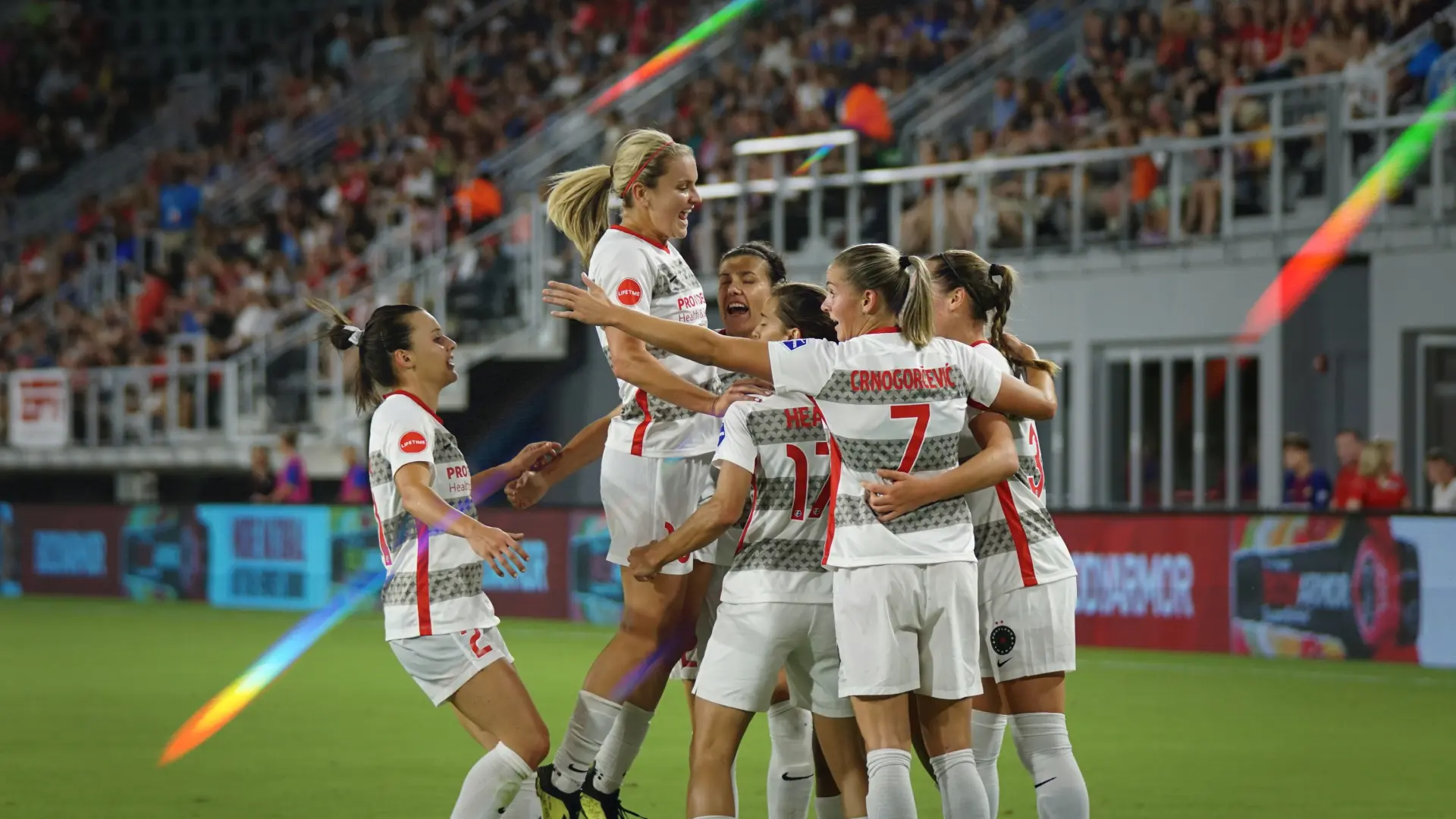Note: This article was published before our rebrand. You may notice our former logo or design elements.
In a comprehensive analysis of German television broadcasts, Shikenso Analytics evaluated the brand exposure generated for official UEFA 2024 sponsors. This analysis covered the entire event, focusing on all sponsor assets displayed during broadcasts.
The atmosphere of the UEFA EURO 2024 was electric, with the air buzzing from the collective heartbeat of fans from across the continent, each match a high of passion, hope, and national pride. Yet, beneath the vibrant displays of competition, there lingered a hint of melancholy, as with each match going by, the tournament drew closer to its inevitable end. As the final whistle echoed through the Berlin stadium, the dust slowly began to settle on the UEFA EURO 2024. Not so for our engines that have been continuously working to analyse the official event sponsors.
Who were the Sponsors of the UEFA EURO 2024
- Adidas: A long-time UEFA partner, adidas provides the official sportswear for the tournament, including kits for players and referees, and the official match ball named "FUSSBALLLIEBE," which integrates advanced connected ball technology.
- AliExpress: Owned by Alibaba Group, AliExpress is an e-commerce giant that offers a wide array of football-related merchandise and other products. The platform aims to connect fans worldwide with competitive prices and exclusive discounts during the tournament.
- Alipay: Operated by Ant Group, Alipay is a leading digital payment platform that facilitates secure and convenient transactions for fans at the tournament. It supports transactions in multiple currencies and offers tax reimbursement services.
- Atos: A French IT services company, Atos is the official IT provider for UEFA EURO 2024. It offers a range of services, including digital workplace solutions, user support, and network equipment to ensure smooth operations and enhance the fan experience.
- Betano: Betano is an online betting platform that offers fans a safe and secure way to place bets on matches during the tournament. The sponsorship allows Betano to connect with millions of football enthusiasts.
- Booking.com: A leading online travel company, Booking.com provides accommodations and travel arrangements for fans attending the tournament. The platform's extensive network includes over 2.7 million properties worldwide.
- BYD: A Chinese manufacturer of electric vehicles (EVs), BYD is the official e-mobility partner of UEFA EURO 2024. The company will provide a fleet of EVs to promote sustainable transportation during the event.
- Coca-Cola: As the official non-alcoholic beverage sponsor, Coca-Cola has a longstanding partnership with UEFA, dating back to 1988. The company will provide beverages across all stadiums and official fan zones throughout the tournament.
- Hisense: A global leader in consumer electronics, Hisense sponsors UEFA EURO 2024 and provides products such as televisions, refrigerators, and smartphones. The company also serves as the official screen provider for VAR.
- Lidl: A German discount supermarket chain, Lidl is a first-time sponsor of UEFA EURO 2024. The partnership includes promotional activities and providing goods for fans and stadiums.
- Engelbert Strauss: A German retailer specializing in workwear and safety equipment, Engelbert Strauss is the official workwear partner of the tournament. The company supplies workwear for staff and promotes safety standards.
- Visit Qatar: As the official tourism partner, Visit Qatar aims to promote tourism to Qatar through its association with UEFA EURO 2024. The partnership highlights Qatar's cultural and tourism offerings to a global audience. The sponsor was also activated and presented via Qatar Airways.
- Vivo: A Chinese technology company, vivo is the official smartphone provider for UEFA EURO 2024. The company will showcase its latest tech and provide tournament staff with its flagship smartphones.
Sponsor Advertisements on LED Boards
LED boards were the most common medium for sponsor advertisements in football stadiums during UEFA EURO 2024. However, each brand employed unique strategies for activation on these boards. Some brands displayed only their logos, while others included slogans and hashtags, or promoted specific products, or a combination of all.
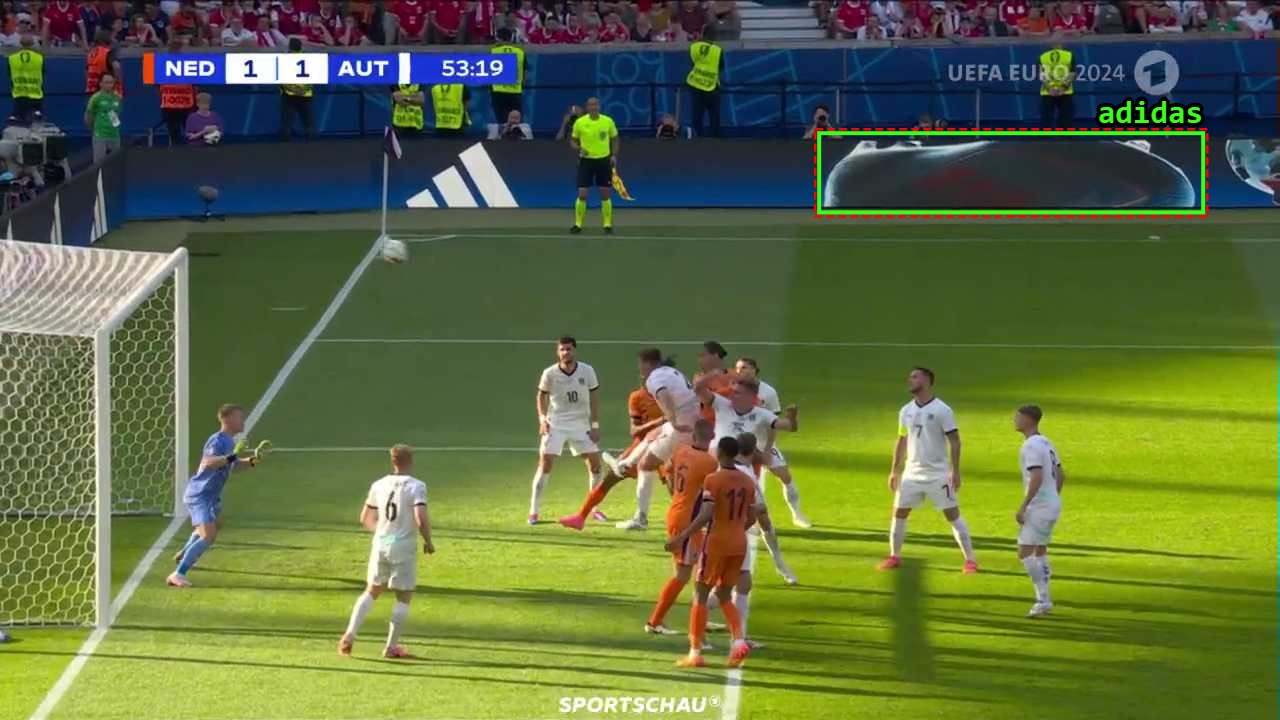
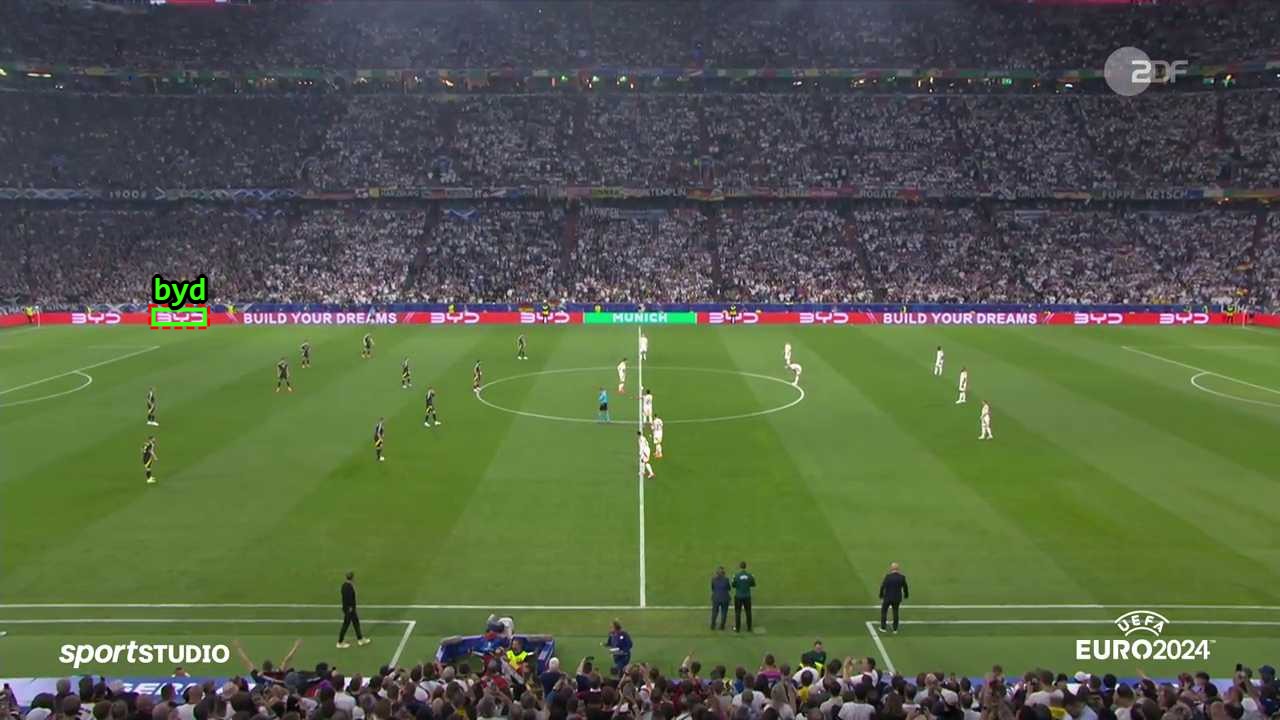
Stadium view during UEFA EURO 2024 showing players preparing for kickoff, with BYD advertising displayed prominently along the LED boards.
.jpg)
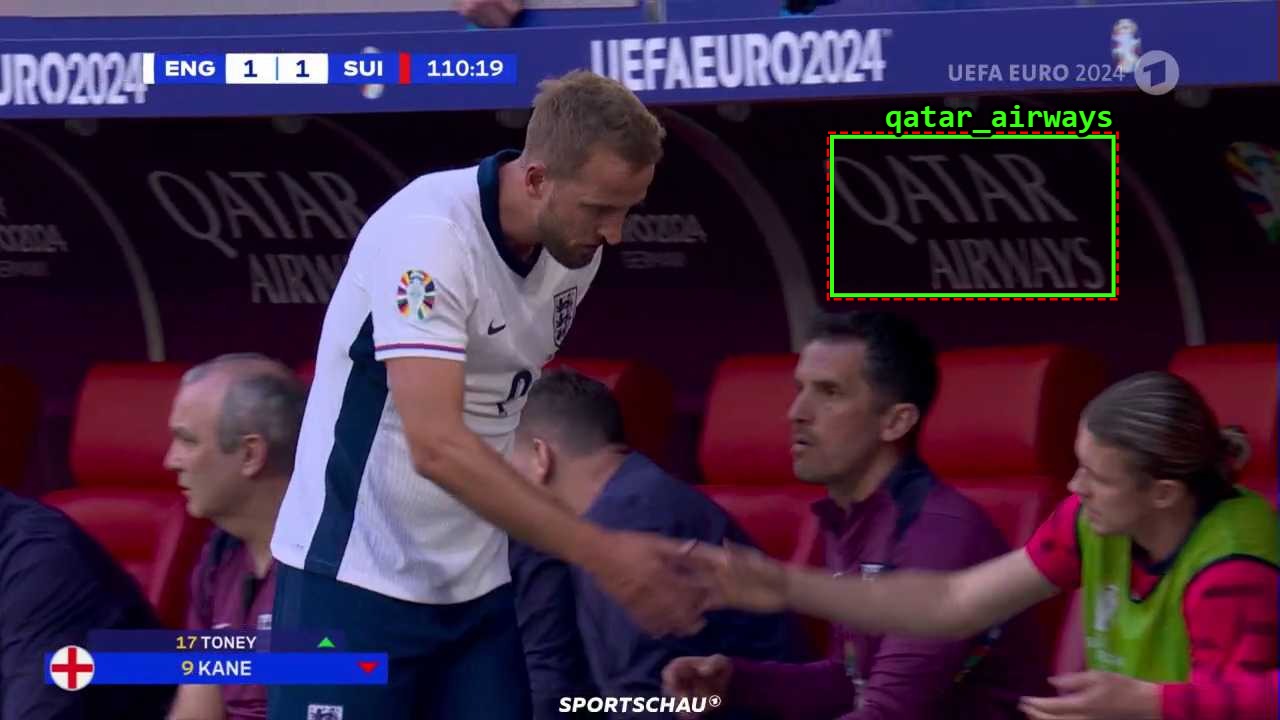
Leveraging AI for Sponsor Analysis
Shikenso Analytics utilizes artificial intelligence (AI) to capture, track, and monitor various forms of sponsorship exposure. Our advanced computer vision technology identifies brand visibility and measures key metrics to assess the effectiveness of sponsorships. The UEFA EURO 2024 analysis considered two key performance indicators (KPIs): Average Exposure Duration & Average Visibility Size.
Analyzing the average duration of each sponsor's exposure revealed a surprising consistency. Despite expectations that dynamic camera movements and different angles would create significant variation, the timeframe for which sponsors' logos or messages were visible was nearly identical across all sponsors. This suggests that the method and timing of advertisement placement had close to no impact on the duration of exposure. However, this does not imply equal overall exposure for all sponsors.
When comparing the average size of each sponsor's visibility, Qatar Airways emerged as the clear leader with an average size of 0.79%. This value more than doubles that of some other sponsors. The size discrepancy is a significant factor in evaluating sponsorship effectiveness, as larger logo exposure generally correlates with higher visibility and increased media value for the brand. So how did Qatar Airways manage to outperform the other sponsors by such a high margin? They did not only advertise via the LED-Board, they also had a strategic placement of their logo on the team benches (more insights below).
Examples of Strategic Exposure Tactics of Sponsors
1. BYD - Dominating Pre-Match Exposure
The Chinese car manufacturer BYD made a strong impact with its strategically timed LED advertisements. Highlighted in red during the pre-match countdown, BYD's ads caught viewers' attention as the match commenced. This strategy not only ensured significant early match exposure but also resulted in the highest average visibility of 7.4 seconds among all sponsors. Furthermore, BYD showcased their car models in official fan zones, providing fans with a hands-on experience.

2. Coca-Cola - Captivating Pre-Half Time Moments
Coca-Cola, the global soft drink giant, strategically activated their brand just before the half-time whistle. This well-timed advertisement aimed to maximize impact during a crucial period of the match. With their campaign, Coca-Cola likely stayed top-of-mind for viewers, potentially prompting many to grab a Coke during the break, whether at home, in fan zones, or at viewing venues.
.jpg)
3. Qatar Airways - Organic Bench Exposure
Qatar Airways adopted a unique approach by placing their logo on the coaches' bench, ensuring organic and unpredictable exposure depending on the flow of the game and camera angles. Despite the unpredictability, Qatar Airways achieved remarkable visibility with an average on-screen size of 1.59% and a total exposure duration of 55 minutes throughout the tournament, significantly outperforming other logo integrations.

Conclusion
The analysis of sponsor exposure during UEFA EURO 2024 highlights the importance of strategic placement and timing in maximizing brand visibility. While the average duration of exposure was consistent across sponsors, the size and context of visibility varied significantly, influencing the overall sponsorship outcome. Understanding these dynamics can help sponsors optimize their investment and enhance their presence in high-profile events like UEFA EURO 2024.

Get new insights straight to your inbox
Don’t miss out on the insights that the press and media rave about!
